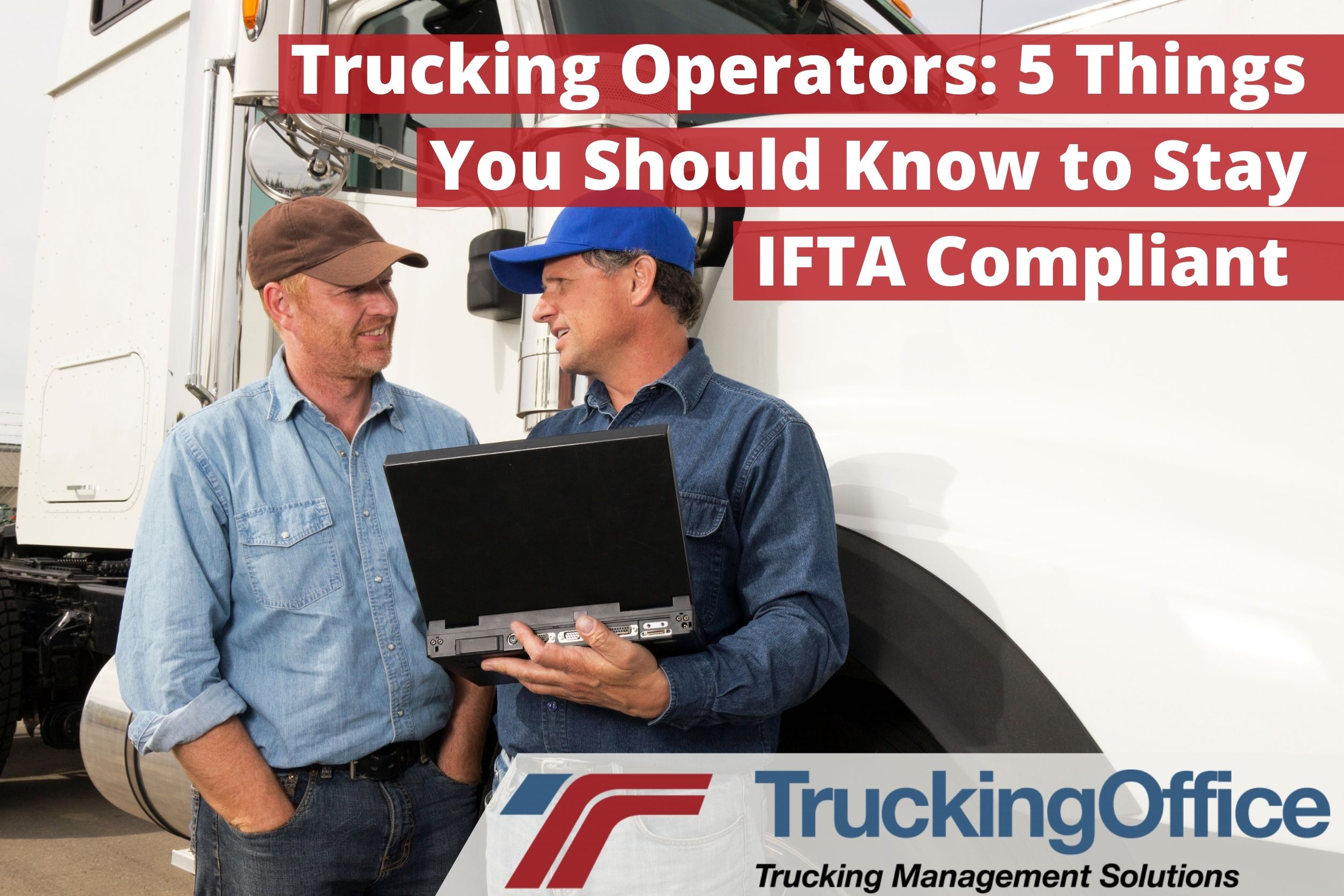All the things you have to remember and do just to be able to haul freight can be overwhelming for many! Most trucking operators have plenty of questions and concerns about the many rules and regulations they must follow. No doubt, IFTA reporting is the most confusing and perplexing of them all. But if you don’t stay IFTA compliant, the problems are a lot worse.
Staying IFTA compliant means you will avoid fines, penalties, or having your vehicle placed in out-of-service status due to non-compliance. So, to stay IFTA compliant and keep your rig on the road, here are some things you need to know:
#1. File your IFTA taxes on time every quarter.
You’re busy, so it’s easy to forget the quarterly report due dates. Or, like many truckers, you put off filing until the last minute because you simply don’t want to deal with the math and paperwork. But be aware: if you miss the deadline, you incur hefty fines or penalties.
#2. Renew your IFTA license and decals on time every year.
Your IFTA license and decals expire on December 31st of each year. You should submit your application for renewal before November 30th to avoid any delays. All IFTA taxes must be paid in full or your license will not be approved for renewal. For this reason alone, stay IFTA compliant!
#3. Keep all receipts and records long enough.
IFTA requires that you maintain a copy of quarterly tax returns for four years. This includes fuel use receipts, mileage records, and any unused IFTA decals. You also need to keep the decals – don’t just peel them off and throw them away! Fuel use cards and electronic receipts and mileage records are acceptable.
#4. Report all miles. Yes, all of them.
To stay IFTA compliant, all miles traveled in an IFTA qualified vehicle should be tracked and reported. This includes personal miles, maintenance road checks, or any other miles driven. If the IFTA suspects an error or omission, you could be subjected to an audit that results in fines or penalties.
The most efficient method for recording mileage is with an electronic logging device (ELD). An ELD is a piece of hardware that plugs into the vehicle’s engine or OBD port. It records speed, location, miles driven, and more. With these devices, all mileage is recorded in real-time and will ensure accurate calculations.
#5. Find a reliable ELD provider.
The FMCSA now requires all qualified commercial vehicles to have electronic logging devices. The purpose of the ELD is to log mileage and HOS to reduce accidents caused by driver fatigue. In addition, an ELD can serve another useful purpose. For instance, data and real-time mileage can be used to accurately calculate IFTA taxes.
Finding a reliable ELD provider can be tricky. The best way to make an informed choice is to ask questions, do some research, and read customer reviews. You can also check FMCSA’s website for a list of self-certified, registered ELDs.
Stay IFTA Compliant with TruckingOffice
If you’re unsure about choosing the best ELD provider, talk to one of our experts at TruckingOffice. We offer a high-quality, fully-certified device backed by superior customer support. Another thing you’ll like about our ELD is that it can easily integrate with our trucking software to provide even more benefits including:
- Automatic invoicing.
- Assists with dispatching.
- Tracks vehicle maintenance.
- Calculates driver pay.
- IFTA reports are always on time.
- Provides profit and loss statements or other reports.
- All your data is secure in one place.
Our system was designed by former truckers who know what you need to succeed in trucking, so check us out. If you want to hear the rest, contact us at our toll-free number today. Or you can try our TMS by signing up for the free trial offer. Take your time and explore all the options we offer. You’ll be surprised at the many other ways TruckingOffice can help you get organized and maintain IFTA compliance.







Recent Comments